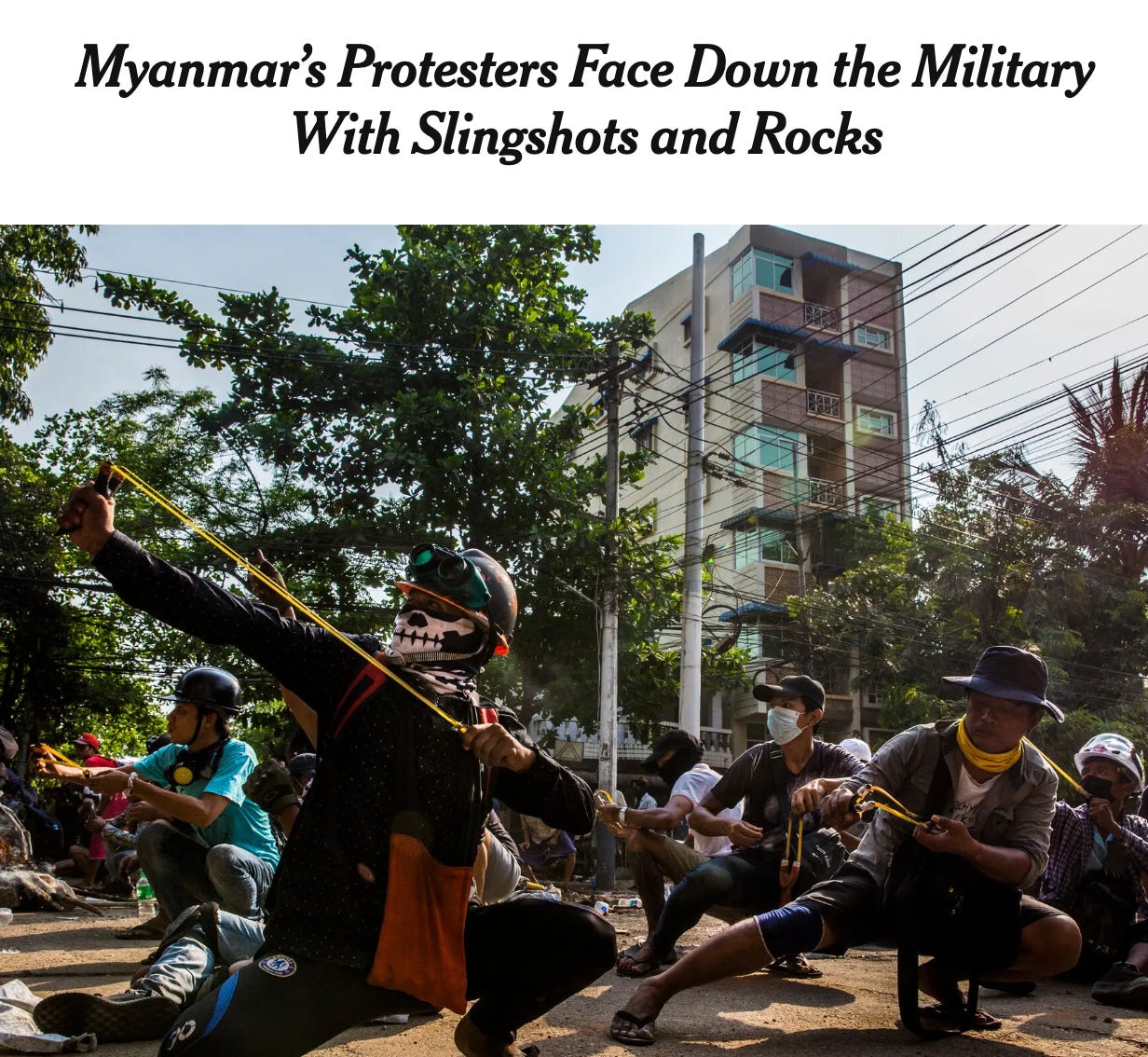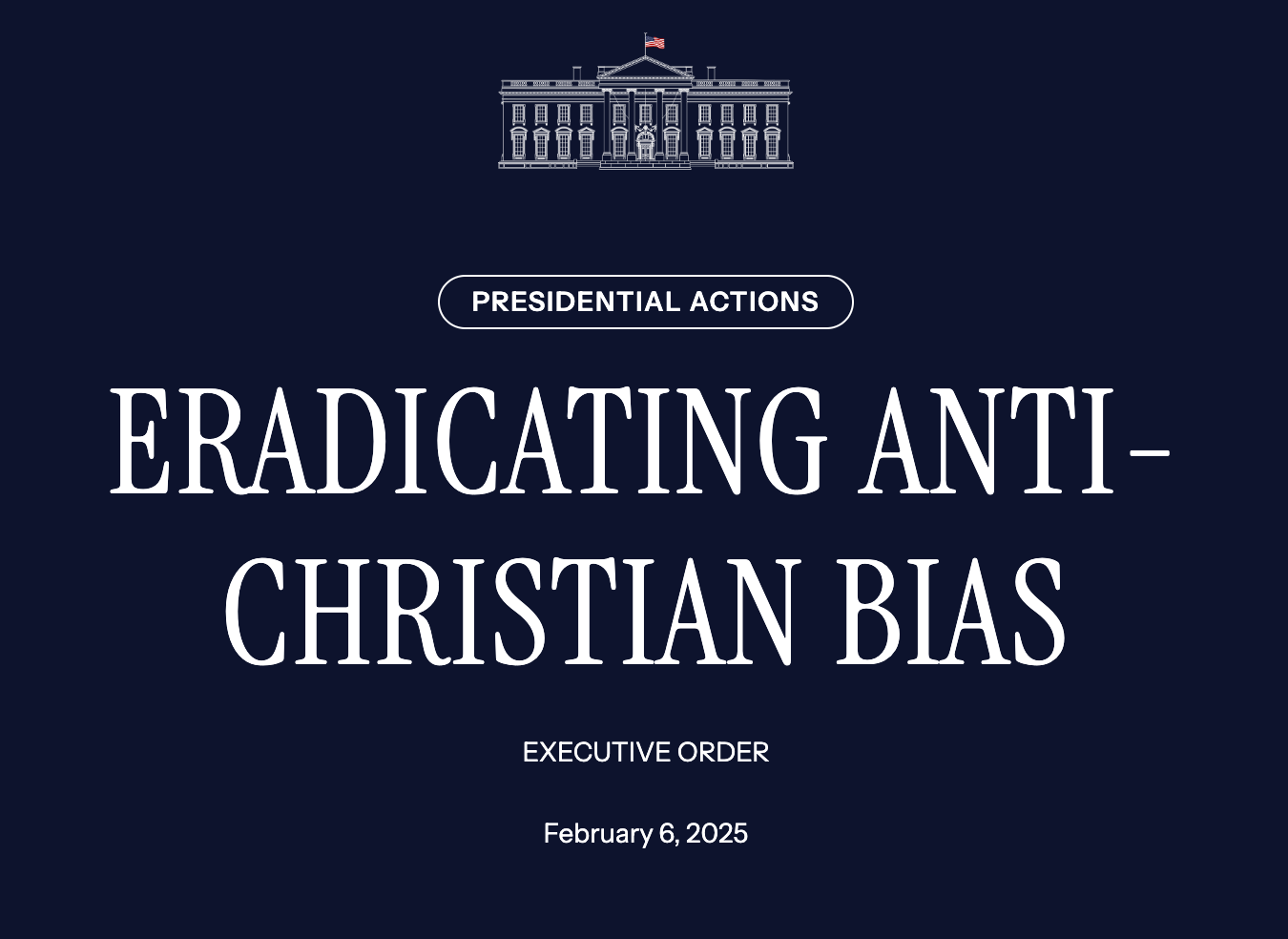U.S. State-Sponsored Trafficking
How economic pressure was used to traffic Christian asylum seekers to Panama
I’ve worked in the anti-trafficking sector for over a decade. Over and over again I’ve watched the lives of vulnerable populations be swept into fights for political power dripping with contradictions.
In 2020, we saw a rise of QAnon with conspiracy theories running rampant, suggesting that children were being shipped around the world in Wayfair storage cabinets. I was interviewed for this Bustle article discussing the connection between the #savethechildren hashtag and anti-mask protests, the Black Lives Matter movement, and vaccine hesitancy.
Here’s the irony in my niche little corner of anti-trafficking research:
Where foreign trafficking and domestic trafficking issues intersect, religious “abolitionists” in the United States react with stark contrasts in their activism.
Whether I am speaking at conferences, teaching online, or engaging with Christians in my own network, there is a massive appetite for supporting human trafficking “rescues” abroad, but little energy devoted to offering safe spaces for the populations most vulnerable to trafficking in our own backyard.
A God-fearing, ex-CIA agent uses American volunteer “special ops” teams to interrupt police investigations in a foreign country?
That movie breaks box office records and becomes one of the top grossing independent films of all time. Americans love a good military story, especially when it involves rescuing children in the name of Jesus.

But when it comes to recent human rights abuses of religious and political refugees in the United States, abolitionist voices from within Christian movements are largely silent in defense of their safety—even though they share the same faith.
Asylum Seekers are Prime Targets for Traffickers
We know from decades of research that some of the people most vulnerable to human trafficking are those stuck in war-torn regions.
When someone is forced to move from their home for their own safety, they choose to leave every other basic security: reliable shelter, regular meals, an income, and even their legal status in the country of their birth.
Political refugees are not taking these risks because they want to commit crimes or smuggle drugs into other countries. They are taking these risks in an attempt to save their own lives or the lives of their family members.
Situations like this make me think of several friends in my own network, whose names I will change for their protection:
Ricardo was a well-connected professional in Haiti, whose life was targeted multiple times when military gangs took control of his neighborhood. His presence in Haiti was actively putting his children at risk because the gang knew he had international connections to money that could be exploited for ransom. So, Ricardo fled across the border to the Dominican Republic before securing a Temporary Protected Status in the United States.
Alaan was an Iranian soldier who converted to Christianity while serving his country. Once his change in faith was discovered, his family’s home was closely watched and he was forced to find a way out of Iran before his fellow soldiers attacked him. He eventually found his way across the Aegean Sea and is awaiting in interview for an asylum hearing in Greece.
Dtheeri was a pro-democracy journalist in Yangon, Myanmar in 2021. When the military junta deposed elected leaders during the February 1 coup, Dtheeri remained in Yangon and took to social media to report daily attacks on civilians, as well as powerful moments from within the resistance movement. After we spoke together on an IG Live, Dtheeri’s Instagram account went dark. The last I heard from a mutual friend, Dtheeri is searching for a path for temporary asylum in a neighboring country.
It can be easy to be consumed with a nationalist identity when you are a citizen of the world’s most powerful economy. But when the United States’s GDP remains $9 Trillion more than China’s, this kind of power holds a unique foreign policy advantage on the global stage that must be kept in check.
Trump, Panama, and Trafficking
In case you missed it in Trump’s joint address to Congress on March 4, the president announced that his administration had begum reclaiming the Panama Canal.
It would be easy to categorize this statement as one more inflammatory comment likened to colonizing the Gaza strip or absorbing Greenland as a 51st state.
But if you look more closely, the U.S. relationship to Panama is suddenly connected to our own state-sponsored trafficking of asylum seekers.
On February 3, 2025, 229 undocumented migrants were transported to Panama from the United States where they were held on multiple floors of a hotel in Panama City, as reported by many major news outlets.
According to BBC News, “Panama agreed to be a ‘bridge’ country for deportations after US Secretary of State Marco Rubio visited the country as tensions simmered over Trump's threats to ‘recover’ sovereignty of the Panama Canal.”
Investigative journalists traveled to Panama City, and were initially blocked from speaking to the detainees inside the Decápolis Hotel. In a clever move, however, reporters like Julie Turkewitz [NYT] sat on the street level and made makeshift signs that could be seen from the hotel rooms, offering their phone numbers to take calls from those being held in custody.
They learned that the majority of the migrants flown together to Panama were originally of Asian nationalities, and most did not speak Spanish. Stories began to overlap, revealing many of these asylum seekers had fled religious persecution in Iran and China, with others from Pakistan, Afghanistan, Vietnam, Turkey, Nepal, Sri Lanka, and Uzbekistan.
One Chinese man shared with NYT reporters, “I thought: America is a free country with respect for human rights. I had no idea it was like a dictatorship.”
He had made his way to the United States in search of religious freedom, but said, “I would rather jump off a plane than go back to China.”
At the time of this BBC article’s publishing, only 171 of the 299 migrants had agreed to be transported back to their home countries. So, what did Panama do with the remaining migrants?
According to NPR, one Chinese woman had escaped the hotel but was later recaptured.
“Security Minister Frank Abrego wrote on a post on social platform X that she was found abandoned near a migrant processing facility along the northern Panama-Costa Rica border, a high-transit point for migrants headed toward the U.S. While it was not clear if she was found in Panama or in Costa Rica, he blamed her brief escape on ‘human traffickers.’”
At least 97 others were transported to a temporary migrant facility near the Darién Gap, which the Council on Foreign Relations describes as “an imposing obstacle on one of the world’s most dangerous migration routes. The remote, roadless crossing on the border between Colombia and Panama consists of more than sixty miles of dense rain forest, steep mountains, and vast swamps.”
Alejandra Olivia reported extensively on the Darién Gap in her article here last week. Make sure you didn’t miss it.
There is real power in understanding the crisis before us, as well as the disinformation rants that are spewing from the highest office in our nation.
This kind of dehumanizing video content is currently being distributed from presidential social media accounts, and it is possible that the individuals in these handcuffs are people of the same religion the White House seems to be intent on making the United States nationality synonymous with Christianity.
As an action step, I recommend reading Alejandra Oliva’s coverage of this topic last week here at The Injustice Report, titled Panama All Over Again. She offers direct ways to get involved outside of contacting your representatives.
If you know of someone who is outspoken about the human trafficking crisis, this is the time to tap them with articles like this one. Now is the time to help them connect the dots between modern exploitation and immigration crises.
As informed citizens, we will be better equipped to bushwhack through heavily politicized headlines and understand the impact our national policies have on lives across the globe.
And, if you are a person of Christian faith, it is critical that we dig deep into our belief system to identify who holds our allegiance: Our global brothers and sisters of faith, or the flag being used to hand them over to predators.
Lauren Pinkston is a researcher with Freedom Business Alliance. She has a PhD from Clemson University and her research pairs human trafficking crises with sustainable business models. She is a specialized consultant for social enterprises, nonprofits, and anti-trafficking initiatives focusing on creative solutions to global and domestic social justice issues. She hosts the "Upwardly Dependent" podcast and writes at her on newsletter, The Mindful Middle. Find out more on her website and follow her on Instagram at @laurenmpinkston.












